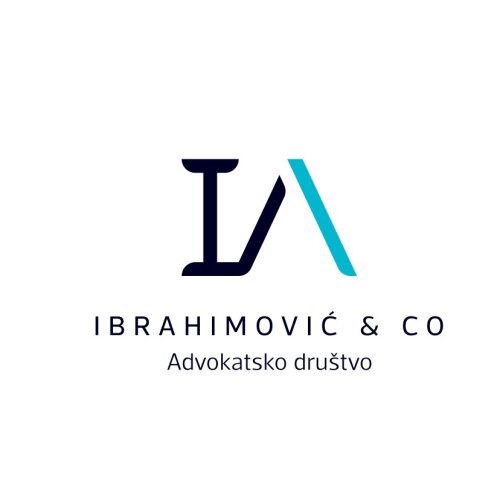Best Art & Cultural Property Law Lawyers in Brcko
Share your needs with us, get contacted by law firms.
Free. Takes 2 min.
List of the best lawyers in Brcko, Bosnia and Herzegovina
About Art & Cultural Property Law in Brcko, Bosnia and Herzegovina
Art & Cultural Property Law in Brcko, Bosnia and Herzegovina, plays a critical role in safeguarding the country's rich heritage and art collections. The region prides itself on a diverse cultural history that attracts scholars, tourists, and art enthusiasts from around the globe. The legal framework governing this area is designed to protect artworks, artifacts, and cultural sites from exploitation, theft, or damage while promoting ethical stewardship and cultural exchange. Legislation often aligns with international standards set by bodies like UNESCO and the European Union, ensuring the preservation of both tangible and intangible cultural assets.
Why You May Need a Lawyer
There are numerous scenarios where an individual or organization might require legal assistance in Art & Cultural Property Law:
- Acquiring or selling artworks or cultural artifacts.
- Engaging in restoration or renovation of historical sites.
- Handling inheritance issues involving valuable artworks or cultural items.
- Seeking restitution or repatriation of artworks.
- Disputes over art ownership or authenticity.
- Suspecting or facing accusations of art theft or illegal exportation.
- Setting up or managing cultural institutions or galleries.
Local Laws Overview
Art & Cultural Property Law in Brcko is guided by several key aspects meant to preserve and promote cultural heritage:
- Both the Federation of Bosnia and Herzegovina and Republika Srpska, along with the Brcko District, have established specific regulations to protect cultural heritage.
- There are stringent laws against the illegal exportation or trafficking of artworks and cultural assets.
- Cultural heritage institutions are mandated to ensure the proper documentation and registry of important cultural properties.
- The law encourages the ethical return or restitution of stolen or illicitly exported cultural items.
- Restoration and renovation of cultural and historical sites must conform to established local and international preservation standards.
Frequently Asked Questions
What is considered a cultural property?
Cultural property includes artworks, artifacts, manuscripts, monuments, and sites that hold cultural, historical, or archaeological significance.
Is a license required to trade in cultural goods?
Yes, individuals or entities must obtain specific permits and comply with regulations when trading in cultural goods to ensure legality.
What should I do if I find a potential archaeological artifact?
Any discoveries of potential archaeological significance must be reported to local authorities to ascertain its cultural value and ownership.
How are restitution claims for artworks handled?
Claims are evaluated based on ownership validity, historical context, and existing legal frameworks, often requiring legal representation to resolve.
Can cultural heritage sites be privately owned?
While private ownership is possible, owners must comply with heritage protection laws which may limit alterations or commercial use.
What are the penalties for illegal exportation of art?
Penalties can include substantial fines, confiscation of the items, and possible imprisonment, depending on the severity of the offense.
How is the authenticity of an artwork determined?
Authenticity is assessed through provenance research, expert analysis, and sometimes forensic testing to assure legitimacy.
Are there tax incentives for cultural donations?
Yes, there are often tax benefits for donating art or cultural assets to public institutions or museums, encouraging cultural philanthropy.
What are the best practices for artifact preservation?
Best practices include controlled environmental conditions, adequate security, proper documentation, and adherence to conservation guidelines.
How can I protect my art collection legally?
Legal protections can be ensured through proper documentation, insurance, understanding cultural property laws, and consulting with legal experts.
Additional Resources
For further assistance or information, consider the following resources:
- Ministry of Civil Affairs of Bosnia and Herzegovina
- Institute for the Protection of Cultural, Historical, and Natural Heritage of Republika Srpska
- Bosnia and Herzegovina Commission to Preserve National Monuments
- UNESCO National Commission of Bosnia and Herzegovina
- Local cultural institutions, museums, and legal firms specializing in cultural property law
Next Steps
If you require legal assistance in Art & Cultural Property Law, consider these steps:
- Identify the specific issue or legal need you are facing.
- Seek recommendations for reputable local law firms specializing in cultural property law.
- Prepare all relevant documents, evidence, or inquiries beforehand to expedite the consultation process.
- Consult with a lawyer to understand your rights, options, and obligations under the current legal framework.
Lawzana helps you find the best lawyers and law firms in Brcko through a curated and pre-screened list of qualified legal professionals. Our platform offers rankings and detailed profiles of attorneys and law firms, allowing you to compare based on practice areas, including Art & Cultural Property Law, experience, and client feedback.
Each profile includes a description of the firm's areas of practice, client reviews, team members and partners, year of establishment, spoken languages, office locations, contact information, social media presence, and any published articles or resources. Most firms on our platform speak English and are experienced in both local and international legal matters.
Get a quote from top-rated law firms in Brcko, Bosnia and Herzegovina — quickly, securely, and without unnecessary hassle.
Disclaimer:
The information provided on this page is for general informational purposes only and does not constitute legal advice. While we strive to ensure the accuracy and relevance of the content, legal information may change over time, and interpretations of the law can vary. You should always consult with a qualified legal professional for advice specific to your situation.
We disclaim all liability for actions taken or not taken based on the content of this page. If you believe any information is incorrect or outdated, please contact us, and we will review and update it where appropriate.








